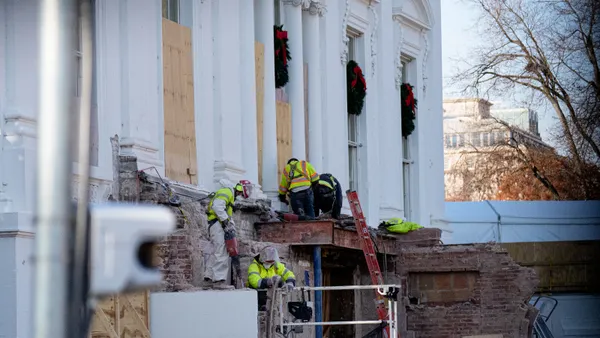Dive Brief:
- Some Denver homebuilders have rejected Denver Mayor Michael Hancock's proposal to charge a development fee on new construction projects in order to pay for a 6,000-unit, $150 million affordable housing plan, according to The Denver Post.
- The builder impact fees — which can go from 40 cents per square foot to $1.70 per square foot — would fund half the initiative, while a modest increase in annual property taxes — $12 for a $300,000 home — would pay for the rest of the mayor's 10-year plan.
- Critics of the initiative maintain that the fee will result in higher costs and rents, pushing affordable housing even further out of reach of those who need it the most, such as service industry workers.
Dive Insight:
Affordable housing advocates are in favor of the plan — estimated to cost an average of $1,500 per new single-family home and hundreds of thousands of dollars for big residential or commercial projects — and said the Denver fees would be less than those imposed in other cities.
Some builders in favor of the plan told the Denver City Council’s Safety and Well-being Committee that charging developers a fee is a fair move because they benefit so much from the finished property, while some opponents suggested that 100% of the proposed affordable housing program be funded through the property tax increase.
Mandates that require developers to include a certain number of below-market units in each project have been a popular way of boosting a city's affordable housing stock. San Francisco, which is facing skyrocketing rents and a housing shortage on an ever-increasing scale, recently more than doubled the number of affordable units builders are obligated to include in their developments of 25 units or more, although they can also have the option to pay a fee instead. California homebuilders sued the city of San Jose, CA, over a similar mandate in 2010 but lost that fight when the U.S. Supreme Court declined to review the California Supreme Court's decision to uphold the requirement.
Other cities like Portland, OR, have adopted a plan similar to the one proposed in Denver and charge a flat fee, which is then funneled into an affordable housing building fund. Portland recently enacted a 1% construction excise tax on most new construction projects of more than $100,000. That tax is expected to raise $8 million each year and was made possible by the lifting of Oregon's ban on affordable housing mandates earlier this year.













